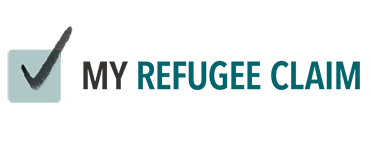Most refugee claimants live freely in Canada for their entire claim process. Only a small number are arrested and detained (held in custody).
In most cases, this happens at the start of the refugee claim process. If CBSA detains you, they will tell you why. Most refugee claimants who are detained are released later.
Why you may be detained
It is important to know the reasons why you could be detained, so you can avoid them. These reasons include:
Flight risk
Flight means that CBSA does not believe you will show up for your removal or an immigration proceeding. For example, you may have a history of not following immigration laws (in Canada or another country).
Identity
A CBSA officer may not be sure that you are who you say you are. This can happen if you do not have documents to prove your identity. It can also happen if CBSA believes you have false documents or does not believe your information about yourself and how you travelled to Canada.
CBSA will ask you for evidence to prove your identity. Sometimes they look at social media, visa applications, or information from other countries.
Danger to the public
CBSA may believe you are dangerous to people in Canada.
Security
If CBSA has any criminal or security concerns, they can detain you while they try to get more information. If they find evidence supporting their concerns, they may ask the IRB-ID to decide that you are not allowed to be in Canada. You will not be able to make a refugee claim. It is important to get legal advice if this happens.
Get released with conditions
For any of the situations above, CBSA may release you if you promise to follow certain conditions. For example, if they think you are a flight risk, you can promise to:
- report to CBSA regularly,
- live at a certain place, or
- get a cash deposit or guarantee from another person (such as a family member).
When you can be detained
You can be detained at a legal border crossing, at an unofficial border crossing, at an airport, a seaport, or within Canada. This may be:
- when you are trying to enter Canada,
- when you are already in Canada, or
- during or after an interview with immigration officials, while you are in Canada.
Where you can be held
If a CBSA officer arrests you, they decide where you will be detained.
CBSA has three Immigration Holding Centres:
- Toronto, Ontario
- Laval, Quebec (close to Montreal)
- Surrey, British Columbia (close to Vancouver)
CBSA can also detain you in a provincial or territorial jail.
Where you are detained depends on whether there is an Immigration Holding Centre in your region, available space in it, and the level of risk they think you pose. The conditions of these locations vary. It may be possible to ask CBSA to change your location. A Detention Liaison Officer or an Inland Enforcement Officer can tell you who to contact if you are concerned about conditions.
How long you can be detained
How long you are detained depends on why you are there. For example, the IRB-ID may release you if you follow certain conditions or if there are children under 18 involved.
Sometimes you may need to give an Alternative to Detention (ATD). An example of an ATD might be to stay with a friend who can supervise you and help you follow your conditions of release. Someone may need to make a cash deposit as part of your ATD.
